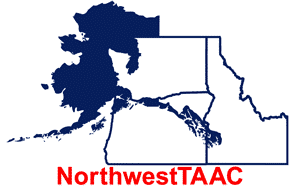| Local manufacturing businesses and jobs have experienced a resurgence in recent years that needs to continue for our region’s livelihood and connection to the global economy. Before the pandemic, the manufacturing sector employed 11.6 million workers in the United States. During the past three years, approximately 500,000 manufacturing jobs were added to the economy. In 2018 alone, 264,000 manufacturing jobs were added, the most created in any single year in more than two decades. Locally in the Pacific Northwest, there were more than half a million manufacturing jobs. Of those, approximately 43% were employed by small firms. While manufacturers have not been immune to the hit we’ve seen many sectors take during 2020 due to the pandemic, we’re already seeing the manufacturing sector start to rebound. In fact, 29,000 manufacturing jobs were added in August 2020 alone. This is both encouraging and necessary for our region as consumers worldwide are increasingly seeking “Made in the USA” products and services. On a macro level during the past couple decades, U.S.-manufactured goods that are exported to other countries have quadrupled. Plus, nearly six in 10 U.S. export dollars come from manufacturers, establishing them as a crucial component to our role in the international marketplace. In North America specifically, the passage of the U.S.-Mexico-Canada Agreement (USMCA) earlier this year has and will continue to drive job creation and strengthen manufacturing in the Pacific Northwest. And since the USMCA establishes a committee on small business issues for the first time in any U.S. trade agreement, it will ensure small manufacturing voices are heard. As local manufacturers are pivoting and innovating to operate in a new environment – and in some cases, switching production to support critical needs of medical equipment and Personal Protective Equipment (PPE) – it takes public and private entities working together for small manufacturing firms to succeed. The federal government is clearing red tape out of the way for small manufacturing firms by reducing regulations. During the past few years, federal agencies have issued multiple deregulatory actions for every new significant regulatory action, saving businesses billions in regulatory costs. In light of the Coronavirus pandemic, many federal regulations have been temporarily lifted; and, regional advocates from the SBA Office of Advocacy are talking to businesses to explore opportunities to permanently clear some of these regulations if they have been burdensome to small firms. In the span of a week this past spring, the SBA rolled out one of the largest economic recovery programs the country has ever seen. Financing programs like the Paycheck Protection Program (PPP), Economic Injury Disaster Loan (EIDL) program, and traditional SBA loan programs have preserved Pacific Northwest jobs and infused approximately $32 billion into Pacific Northwest small businesses in 2020.With federal programs, local government, and industry and business organizations working together – combined with the ingenuity of Pacific Northwest small businesses – the manufacturing industry will prevail and ultimately thrive. Jeremy Field is the Regional Administrator for the U.S. Small Business Administration (SBA) Pacific Northwest Region which serves Washington, Oregon, Idaho and Alaska. |
